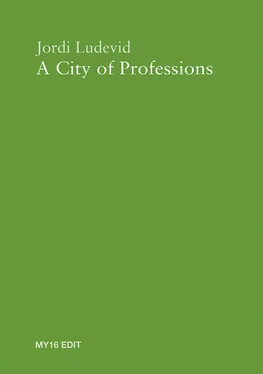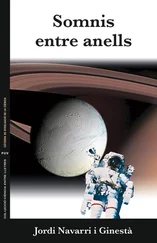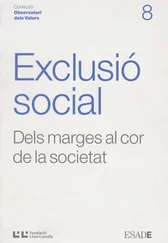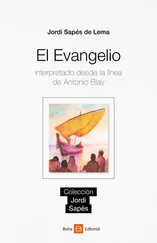30Since the 20th century, university education has been predominantly academic, theoretical, cognitive and not very conducive to professional practice, which is oriented towards practical knowledge and the resolution of practical cases.
Professional Missions: Forty Professions, Six Missions, One City
The relationship between the professions and society is channelled and flows in both directions, mainly through their missions. That is why their missions are so important. If we add to this the massive quantitative extension of the professional fact, it makes sense to say that we live in «a country of professions».31 Thus, the professional world observes social reality from its own logic, which is derived from a particular language and vision, although in many analyses the professions and their vision do not exist, and so they go completely unnoticed.
Certainly, without a clear mission, there can be no profession, because the latter is instrumental with respect to the former. In that sense, in our necessary reflection, we must speculate about the mission and social utility, about the «internal good» that today’s professions serve. In other words, we should ask them what their mission is, such that through their answer we can recover and re-establish a narrative, so that society can understand them and so the world of politics can too.
At the First National Congress of Professions, held in Madrid in January 2018, six social missions were proposed for the 33 professions associated with the Spanish Unión Profesional. This is something of a simplification, as there are certainly many more professions than missions; likewise, it is clear that each mission corresponds to a professional sub-sector.
The six missions are as follows:
1. Health: medicine, nursing, speech therapy, psychology, pharmacy, optometry, dentistry, veterinary medicine.
2. Habitability: architecture, quantity surveyor-technical architecture, property management – in some cases, some branches of engineering and geology.
3. Legal certainty: the legal profession, registry offices, notary’s offices, procuration, administrative management.
4. Education: PhDs and undergraduate university degrees, physical education, social education.
5. Economic and environmental sustainability: economics, actuaries, engineering (civil, naval, industrial, telecommunications, forestry, agricultural, topography, public works, mining), chemistry, physics, geology, and socio-cultural sustainability (social work, social education).
6. Communication: journalists, communicators.
This is the current map of the professional reality in Spain, a map that is very similar across Europe and the world. Health, habitability, legal security, education, economic/environmental/social sustainability and communication are the six clear, comprehensible, definitive, essential missions for the urban project, for the European project, for social cohesion and for human rights. And also for the network society. They are capable of «generating, justifying and legitimising» the professions. Not the other way round. The mission comes first. Without a clear mission, there can be no profession. This is followed by the specialised commitment of a group of experts or, to return to Hippocrates, «the philo technè and the philo anthropoiè».32
The missions of the professions are much less numerous, although they are more stable and of course people oriented. Just recognising them can help us all think through mapping, to understand reality better and to make better decisions. They are socially useful, anthropological, easy to communicate, understandable and essential. Keeping them in mind can contribute to processes of regeneration and reorientation in the professional world.
We should also refer to the wide-ranging debate and significant international concern about the future of work and the professions and the organisation of practical knowledge. In social research institutes and major think tanks around the world, the future of work is seen as a relevant issue, with wide-ranging implications for research and social organisation.
In this context, professional hyper-specialisation sometimes leads to confusion and disorientation. As Eduard Punset used to say, «We know too much about too little. We will end up knowing everything about nothing.» In that sense, certain connections, an ability to put things in context, and some capacity for synthesis are interesting assets: intelligent taxonomies are useful as a tool for reference and mapping. That is how an understanding of the six professional missions can be inspiring.
However, it is clear that the range of professions has expanded enormously and continues to do so, mainly due to the processes of specialisation of practical knowledge, but also due to the processes of specialisation of the public service to people. The missions, in contrast, are and will remain more stable and more comprehensible. Thus, in a reality characterised by constant intersections and by diverse and complex systems of internal specialisation, missions convey a powerful, stable message that offers clarity, legitimacy and employability.
That said, professional work today is very often inter- and trans-disciplinary. The interdependencies of one mission with the others fully express their spatial, citizen-based and communal nature. The safe city requires education. The healthy city requires architecture. The liveable city is not just an issue for architects or geologists. The missions, like human rights and the Sustainable Development Goals,33 need one another. Although they are distinct, they are interdependent; and, in the end, it is in cities and neighbourhoods where synthesis takes place.
Thus, the six missions together constitute the de facto vision or view of the professional world – a way of looking at the city and society, the expression of a common identity, which encompasses a history, a taxonomy and a language. Although those elements may be hidden and unfamiliar, they coexist with others that are often much more complex and much more difficult to understand and communicate. For example, both the texts and the structure of the New Urban Agenda, as well as the 2030 Agenda and its 17 Sustainable Development Goals, are much more complex for society to understand and interpret. As part of our shared historical heritage, the professions should not leave behind their own identity, or their own language, founded on their common elements and guiding principles – largely because that would be a prologue to their disappearance.
31Unión Profesional española, «Un país de profesiones», I Congreso Nacional de Profesiones, Madrid, January 2018. https://www.youtube.com/watch?v=10BgVOQuFQM
32Dr. Adrià Gual, I National Congress of Professions, Madrid, January 2018. https://www.youtube.com/watch?v=10BgVOQuFQM
33SDGs: Sustainable Development Goals 2030. UN, 2015.
Конец ознакомительного фрагмента.
Текст предоставлен ООО «ЛитРес».
Прочитайте эту книгу целиком, купив полную легальную версию на ЛитРес.
Безопасно оплатить книгу можно банковской картой Visa, MasterCard, Maestro, со счета мобильного телефона, с платежного терминала, в салоне МТС или Связной, через PayPal, WebMoney, Яндекс.Деньги, QIWI Кошелек, бонусными картами или другим удобным Вам способом.












